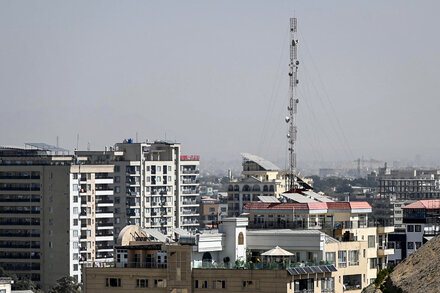
KABUL, Afghanistan – Afghanistan is grappling with a widespread internet blackout that has now entered its third consecutive day, severely disrupting communication, commerce, and daily life across the country. The outage, which began on Monday morning, has left millions without access to online services, exacerbating existing challenges in the war-torn nation.
The extent of the disruption appears to be comprehensive, affecting both mobile data services and fixed-line internet connections in major urban centers, including the capital, Kabul, as well as more remote provinces. Users attempting to access the internet have reported consistent failures to connect, with only intermittent and localized exceptions, primarily in areas with specific satellite-based or independent network infrastructure.
The impact on the Afghan populace has been immediate and profound. Businesses, many of which rely on digital transactions and online communication for their daily operations, have reported significant losses. Educational institutions have seen disruptions to remote learning initiatives, while individuals struggle to connect with family members both domestically and abroad.
“It’s like we’ve been cut off from the world,” said Ahmadullah, a shopkeeper in Kabul, speaking on Tuesday. “My business relies on mobile payments and communicating with suppliers. Everything has stopped. We don’t know why this is happening, and no one is telling us anything.”
Official Silence and Speculation
As of Wednesday, there has been no official statement from the de facto Taliban administration regarding the cause or expected duration of the blackout. This silence has fueled speculation among residents and international observers alike, with many pointing to previous instances where authorities have restricted internet access during periods of unrest or for control purposes.
Some analysts suggest the blackout could be a deliberate measure, possibly related to internal security concerns, attempts to quell dissent, or a means to control the flow of information. Others have speculated about technical failures or maintenance issues, though the prolonged and widespread nature of the outage makes a simple technical fault less likely.
“While a technical issue cannot be entirely ruled out, the lack of transparency from the authorities and the national scope of the blackout strongly suggest a deliberate action,” noted Dr. Sara Khan, a regional communications expert. “It’s a powerful tool for information control, particularly in a country where traditional media is already heavily monitored.”
Humanitarian Concerns and International Reaction
The internet shutdown has also raised significant concerns among humanitarian organizations operating in Afghanistan. Aid efforts, which often depend on digital communication for coordination, logistics, and data collection, have been severely hampered. The inability to communicate effectively poses challenges for delivering essential services and monitoring needs in a country already facing a severe humanitarian crisis.
“Our teams on the ground are finding it incredibly difficult to coordinate operations without internet access,” stated a spokesperson for an international NGO, who wished to remain anonymous due to sensitivities. “It slows down our ability to respond to emergencies and reach vulnerable populations with critical aid.”
The international community has begun to express concern over the situation, with calls for the restoration of internet services and transparency from the Afghan authorities. Access to information and freedom of communication are fundamental rights, and a prolonged blackout risks further isolating Afghanistan and its people from the rest of the world.
As the blackout enters its third day, the absence of official explanation leaves citizens and aid agencies navigating an information vacuum, uncertain when normal digital connectivity will be restored and what long-term implications this disruption may have on the nation’s fragile stability.
Source: Read the original article here.





